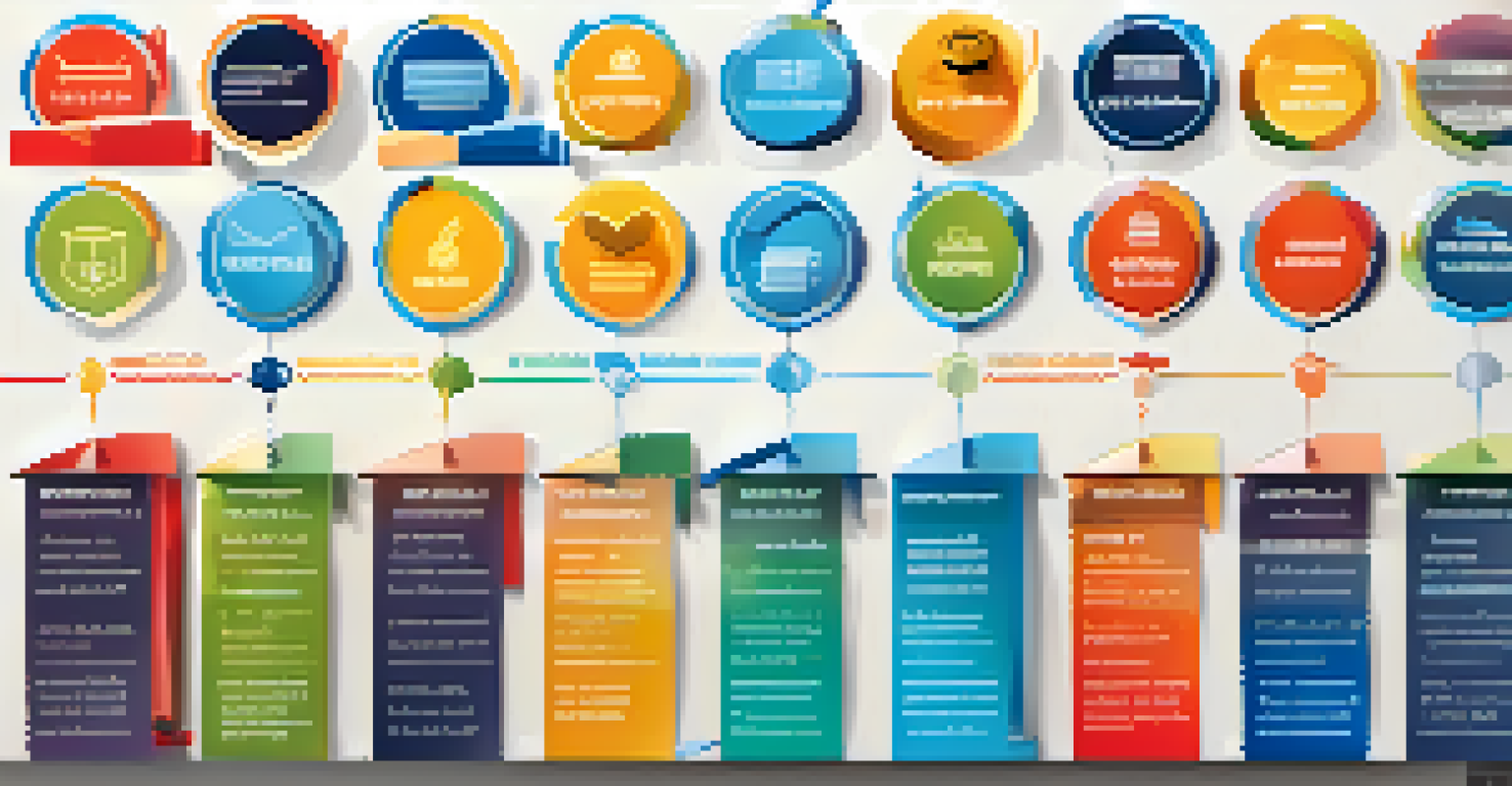Micro-Credentials: Expanding Access to Quality Education

What Are Micro-Credentials and Why Do They Matter?
Micro-credentials are bite-sized certifications that focus on specific skills or knowledge areas. Unlike traditional degrees, they allow learners to demonstrate expertise in targeted subjects, making education more accessible. This approach is particularly beneficial in today's fast-paced job market, where employers often seek specific skills rather than broad qualifications.
Education is the most powerful weapon which you can use to change the world.
Imagine learning to code in Python or mastering digital marketing strategies without committing to a full degree program. Micro-credentials provide the flexibility to learn at your own pace, enabling personal and professional growth without the hefty price tag or time investment of traditional education. As a result, they empower individuals from varied backgrounds to upskill and adapt to changing industry demands.
In essence, micro-credentials break down education into manageable pieces, allowing learners to build their portfolios and enhance their employability. They serve as a bridge, connecting education to the evolving needs of the workforce and making quality learning opportunities accessible to a broader audience.
Expanding Access to Education Through Micro-Credentials
One of the most significant advantages of micro-credentials is their accessibility. They can be offered online, making it easier for individuals in remote areas or those with busy schedules to participate. This flexibility opens doors for many who might not otherwise have the opportunity to pursue traditional education, including working professionals, parents, and those looking to change careers.

For example, platforms like Coursera and edX provide learners with access to courses from top universities and organizations worldwide. With the option to earn micro-credentials, individuals can gain skills that are directly relevant to their job market. This democratization of education means that geographical and financial barriers are less daunting than ever before.
Micro-Credentials Enhance Accessibility
Micro-credentials offer flexible, bite-sized education options that make learning accessible to individuals regardless of their location or schedule.
Moreover, micro-credentials often come at a fraction of the cost of traditional degrees, making it economically feasible for more people to invest in their education. This shift in accessibility not only benefits individuals but also leads to a more skilled workforce, ultimately contributing to economic growth and innovation.
The Role of Employers in Embracing Micro-Credentials
Employers play a crucial role in the success of micro-credentials. As they become more familiar with these certifications, many organizations are starting to recognize them as valid indicators of a candidate's skills. This shift can create a more diverse talent pool, as it opens opportunities for those who may not have traditional degrees but possess the necessary skills.
Learning never exhausts the mind.
For instance, companies like IBM and Deloitte have begun incorporating micro-credentials into their hiring practices, actively seeking candidates with these certifications. This change not only helps employers find qualified individuals but also encourages learners to pursue skills that align with industry needs. It's a win-win situation where both parties benefit from increased alignment with market demands.
As more employers acknowledge the value of micro-credentials, we can expect to see a cultural shift in the job market. Instead of relying solely on degrees, hiring managers may prioritize practical skills and real-world experience, paving the way for a more inclusive hiring process.
Micro-Credentials vs. Traditional Degrees: A Comparison
While traditional degrees have long been the gold standard in education, micro-credentials offer a compelling alternative. Traditional programs typically require several years of study, whereas micro-credentials can be earned in a matter of weeks or months. This rapid learning curve is particularly appealing to those eager to enter the job market or advance their careers quickly.
However, it's essential to recognize that micro-credentials and traditional degrees serve different purposes. While degrees provide a broad education and in-depth knowledge in a specific field, micro-credentials focus on specific skills that can be immediately applied. This means that learners can choose the best path based on their career goals and personal circumstances.
Employers Recognize Skill-Based Learning
As employers increasingly embrace micro-credentials, they create a more diverse talent pool by valuing practical skills over traditional degrees.
Ultimately, the choice between micro-credentials and traditional degrees depends on individual needs and aspirations. Both options have their merits, and as education evolves, we'll likely see a blend of these approaches to create a more customized learning experience.
Challenges Facing Micro-Credential Adoption
Despite their growing popularity, micro-credentials face several challenges to widespread adoption. One of the primary concerns is the lack of standardization across programs. With so many providers offering various micro-credentials, employers may struggle to assess their value and credibility, leading to inconsistencies in how they're perceived in the job market.
Additionally, some learners may be overwhelmed by the sheer number of options available. Without clear guidance on which micro-credentials are most valuable for their career goals, individuals might find it challenging to navigate the educational landscape effectively. This uncertainty can hinder the potential benefits that micro-credentials offer.
To overcome these challenges, collaboration among educational institutions, employers, and industry leaders is essential. By establishing standards and promoting awareness of the value of micro-credentials, we can create a more coherent system that benefits learners and employers alike.
The Future of Micro-Credentials in Education
As we look to the future, micro-credentials are poised to play a significant role in reshaping the education landscape. With the rapid pace of technological advancement and the evolving needs of the workforce, the demand for flexible, skill-based learning is only expected to grow. This trend will likely encourage more educational institutions to adopt micro-credential programs.
Furthermore, as employers continue to embrace micro-credentials as valid credentials, we may see a shift in hiring practices that prioritizes skills over degrees. This could lead to a more diverse and inclusive workforce, where individuals from various backgrounds can find opportunities based on their capabilities rather than their educational history.
Future Focus on Flexible Learning
The demand for micro-credentials is set to grow, reshaping education to prioritize skill-based learning that aligns with industry needs.
Ultimately, the future of micro-credentials looks bright. By providing accessible, relevant, and affordable education options, they have the potential to empower individuals, drive economic growth, and transform the way we think about learning and career development.
Conclusion: Embracing Micro-Credentials for Lifelong Learning
In conclusion, micro-credentials represent a significant shift in how we approach education and skill development. They make quality education more accessible, allowing individuals to learn at their own pace and acquire relevant skills for today’s job market. As the world continues to change, embracing micro-credentials can empower learners to adapt and thrive.
Moreover, the collaboration between educational institutions, employers, and learners will be pivotal in maximizing the benefits of micro-credentials. By working together to establish standards and promote awareness, we can create a more inclusive educational ecosystem that values practical skills and fosters lifelong learning.

As we navigate this new era of education, let’s celebrate the opportunities that micro-credentials provide and encourage individuals to pursue their passions, develop their skills, and contribute to a more dynamic workforce.